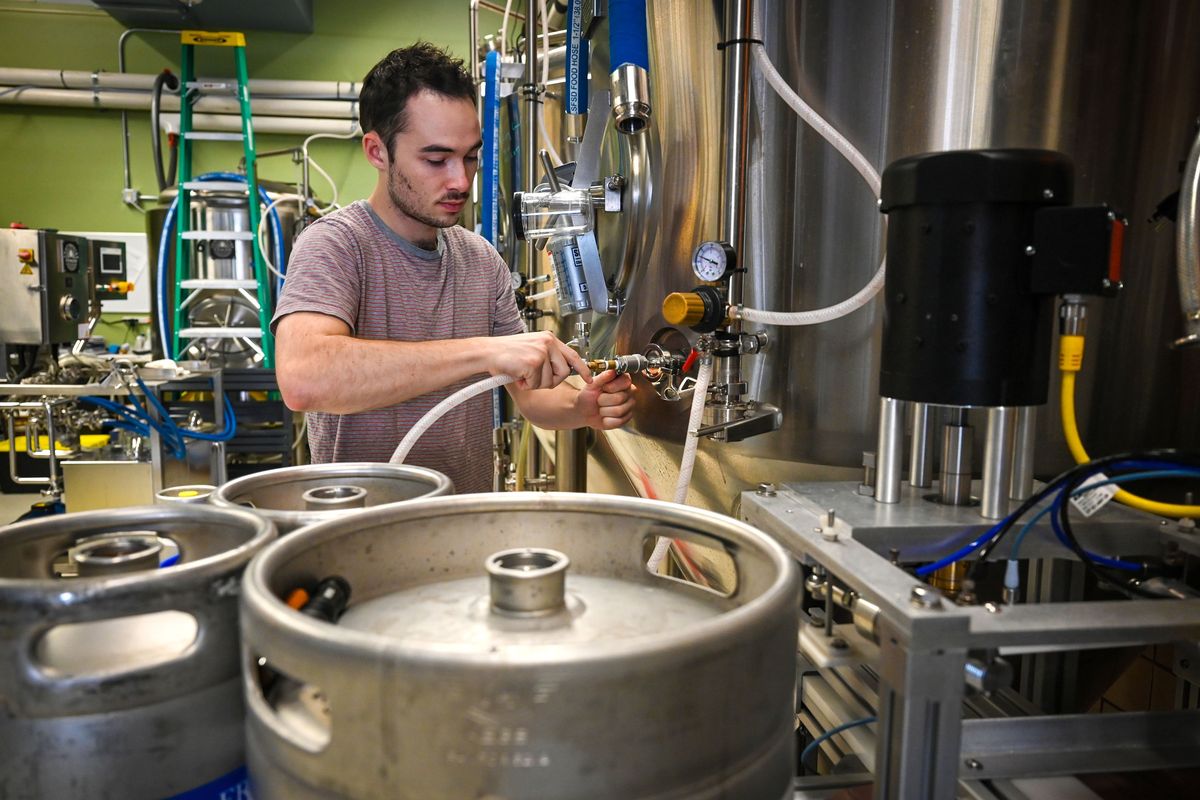Contaminated CO2 from Mississippi volcano pressures local brewers

A national shortage of carbon dioxide may not sound like a big deal, unless you rely on that gas to pressurize lines and kegs and provide the tiny bubbles that make a brew a beer.
No-Li Brewhouse owner John Bryant said carbon dioxide is used virtually everywhere in the brewing process. So it has been a shock as the cost CO2 has tripled in the past 24 months.
The blame rests with supply chain issues and an extinct volcano in Mississippi.
Called the Jackson Dome, the volcano sits about 2,900 feet below the city of Jackson – specifically beneath the Mississippi Coliseum. It holds a massive reservoir of CO2 that is tapped, stored and delivered to industries across the country, including brewers.
Shortages began in mid-2020 when production of ethanol – of which carbon dioxide is a byproduct – slowed as more people stayed home. This summer, the problem became more acute when CO2 in the Jackson Dome became contaminated by gas from a nearby mine.
“We hope to be patient,” Bryant said when asked if the shortage will cause higher prices for his beers. “We don’t control prices at the store level. That’s dictated by our distributors.”
No-Li is the seventh-largest brewer in the state, Bryant said.
“It’s important that people know we are doing our best,” he said. “Sometimes it feels like it’s No-Li against the world when you are trying to control your costs, but we do try.”
Breweries rely on CO2 not just for those bubbles that beer-drinkers expect but also for moving beer between tanks or to kegs and canning lines, and to purge oxygen from tanks.
“Warm and flat is not where it’s at,” Bob Pease, the president and CEO of the Brewers Association, which represents small and independent craft breweries, told the Washington Post. “It’s a key ingredient.”
Another factor has been maintenance shutdowns at several ammonia plants that are key producers of CO2, according to the association, as well as the usual-higher demand in summer months.
That’s when the industry enjoys higher sales of beer and soda and experiences the need for more dry ice – which also uses CO2 in its production.
Sean Owens, owner of Common Language Brewing Co., 926 W. Sprague Ave. in Spokane, said he gets his carbon dioxide from the same local source as No-Li.
He expects to produce about 350 barrels of beer this year, compared to the 18,000 by No-Li.
“Fortunately, we are not seeing a lot of shortages on our end, although our costs have gone up considerably,” Owens said. “But I’ve got friends in other places who are a little more rural. They are trying to figure it out. It’s a challenge.”
Owens also sources local grains from the Palouse, which has insulated him from higher shipping costs.
“In the brewing industry, you rely on good water and grain and yeast,” he said. “The costs for everything has gone up.”
The largest brewers rely on systems that can recapture, or recycle, the carbon dioxide within the system.
“It’s cool if you can reuse it,” Owens said. “But that equipment is out of reach for most small breweries.”
Bryant, at No-Li, wasn’t ready to say just when, but confirmed that his brewery is looking at upgrading its brewing process to do just that – recycle it’s CO2.
“We are actively working on that,” Bryant said. “We are trying to do the things that the largest brewers in the world do. We are pretty excited about it.”
As with any upgrades, the system’s cost “is a pretty big dollar amount,” he said. “But to those responsible to the environment, those are the things you need to do.”
The Brewers Association earlier this year issued guidelines for brewers to help them get the most out of their carbon dioxide, including making sure there aren’t leaks in their lines.
At the same time as the industry faced a CO2 shortage, Ball Corp., the biggest supplier of cans, increased its minimum order fivefold, causing many breweries to seek out different suppliers, often at a higher cost.
Other hits have included increased costs for labor, transportation and other ingredients.
“Our members have faced a long string of challenges, and we have found ways to overcome most of them,” Pease said. “We will try to help our members overcome this one.”
Bryant said he’s trying to manage No-Li’s business plan out for a period of years, hoping that supply-chain shortages and cost spikes normalize over the long run.
“We want the customers to know that No-Li is doing everything we can to keep prices available,” he said. “We will do everything we can to fight like hell over that.”
Thomas Clouse can be reached at (509) 459-5495 or at tomc@spokesman.com.